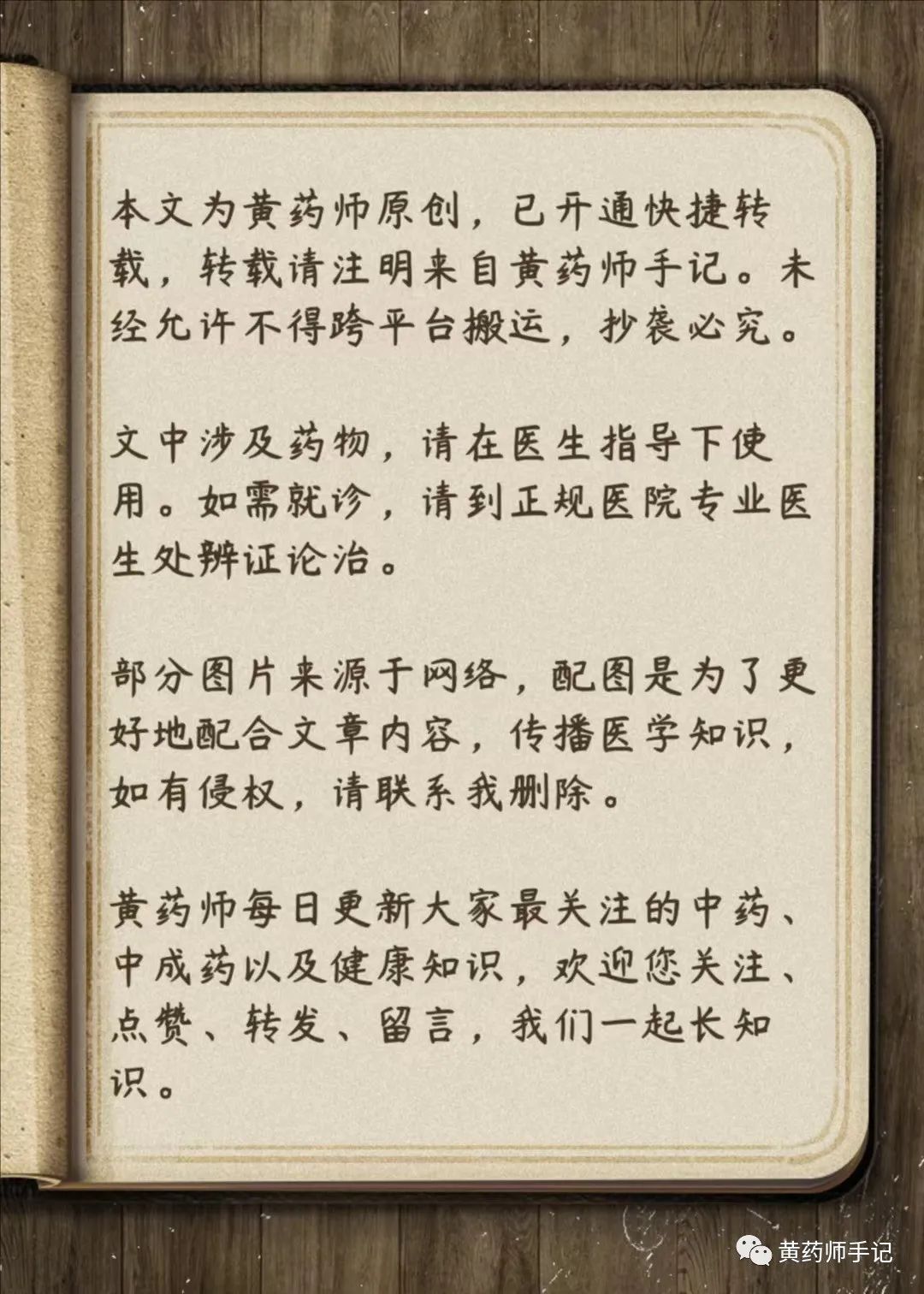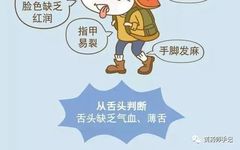Some believe that the concept of “blood deficiency” in Traditional Chinese Medicine (TCM) is equivalent to what we now refer to as “anemia.” However, the two are not entirely the same.Anemia is an abnormal indicator, defined as hemoglobin levels <120g/L in adult males and <110g/L in adult females (non-pregnant). Symptoms often manifest as fatigue, easy exhaustion, and dizziness.In contrast, blood deficiency is a systemic syndrome in TCM, representing a state of the body lacking nourishment and moisture, leading to a “dry” overall condition, with symptoms such as pale or sallow complexion, pale lips, tongue, and nails, dry skin, dizziness, palpitations, insomnia with vivid dreams, numbness in hands and feet, scanty menstrual flow, pale color, delayed menstruation, or amenorrhea.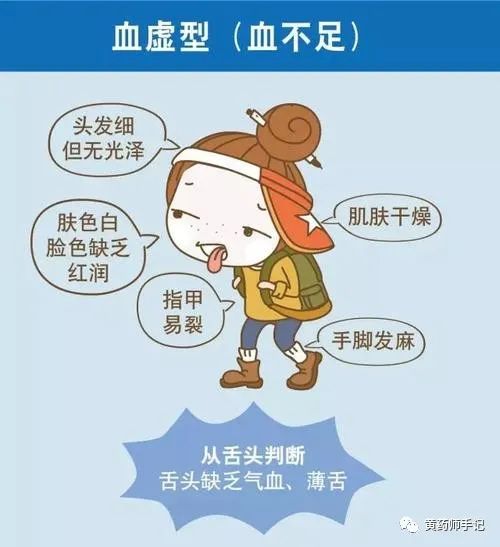 According to TCM theory, the heart governs blood, the liver stores blood, and the spleen controls blood. Blood deficiency is closely related to the heart, liver, and spleen. Clinically, patients with neuroses, heart disease, heart failure, chronic hepatitis, insomnia, as well as postpartum women, those recovering from serious illness, and individuals with congenital deficiencies are prone to symptoms of blood deficiency.Therefore, TCM’s approach to nourishing blood does not simply involve supplementing blood cells or iron; many so-called “popular science articles” actually misunderstand this concept.In TCM, nourishing blood is achieved through the nourishing and strengthening effects of herbal medicines, improving the distribution of vital energy and nutrients throughout the body, enhancing bodily functions, and indirectly promoting organ hematopoiesis, liver protection, and calming effects, thereby alleviating symptoms.This article discusses TCM formulas used for blood deficiency.1. Si Wu Decoction
According to TCM theory, the heart governs blood, the liver stores blood, and the spleen controls blood. Blood deficiency is closely related to the heart, liver, and spleen. Clinically, patients with neuroses, heart disease, heart failure, chronic hepatitis, insomnia, as well as postpartum women, those recovering from serious illness, and individuals with congenital deficiencies are prone to symptoms of blood deficiency.Therefore, TCM’s approach to nourishing blood does not simply involve supplementing blood cells or iron; many so-called “popular science articles” actually misunderstand this concept.In TCM, nourishing blood is achieved through the nourishing and strengthening effects of herbal medicines, improving the distribution of vital energy and nutrients throughout the body, enhancing bodily functions, and indirectly promoting organ hematopoiesis, liver protection, and calming effects, thereby alleviating symptoms.This article discusses TCM formulas used for blood deficiency.1. Si Wu Decoction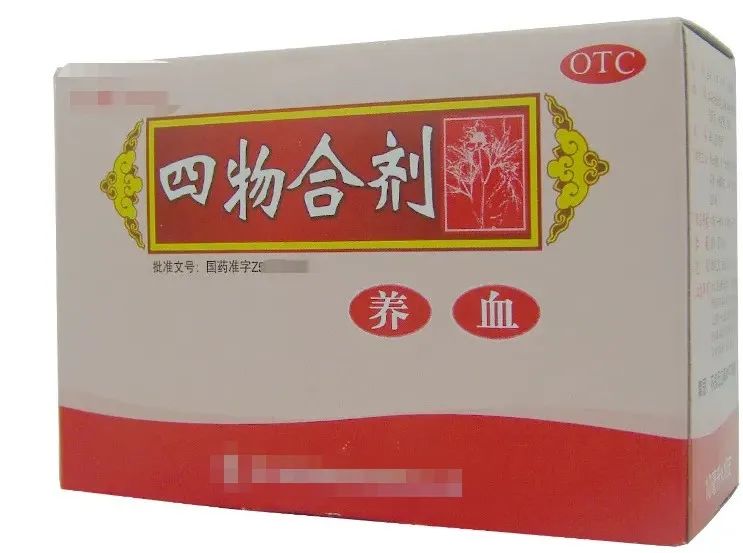 Image for reference only; please use TCM formulas under the guidance of a physician.Ingredients: Dang Gui (Angelica Sinensis), Chuan Xiong (Ligusticum Chuanxiong), Shu Di Huang (Rehmannia Glutinosa), Bai Shao (Paeonia Lactiflora)Derived from the famous blood-nourishing formula Si Wu Tang, it is used for symptoms of blood deficiency such as pale complexion, dizziness, palpitations, and menstrual irregularities.Modern research suggests that Si Wu Tang has blood-nourishing, microcirculation-improving, immune-enhancing, antioxidant, and anti-aging effects. Clinically, it has been used as an adjunct treatment for premature ovarian failure, effectively improving hormone levels and clinical outcomes.Note: Caution is advised for those with yin deficiency and blood heat, as Si Wu Tang has a warming nature and may exacerbate heat symptoms in such individuals.2. Gui Pi Wan
Image for reference only; please use TCM formulas under the guidance of a physician.Ingredients: Dang Gui (Angelica Sinensis), Chuan Xiong (Ligusticum Chuanxiong), Shu Di Huang (Rehmannia Glutinosa), Bai Shao (Paeonia Lactiflora)Derived from the famous blood-nourishing formula Si Wu Tang, it is used for symptoms of blood deficiency such as pale complexion, dizziness, palpitations, and menstrual irregularities.Modern research suggests that Si Wu Tang has blood-nourishing, microcirculation-improving, immune-enhancing, antioxidant, and anti-aging effects. Clinically, it has been used as an adjunct treatment for premature ovarian failure, effectively improving hormone levels and clinical outcomes.Note: Caution is advised for those with yin deficiency and blood heat, as Si Wu Tang has a warming nature and may exacerbate heat symptoms in such individuals.2. Gui Pi Wan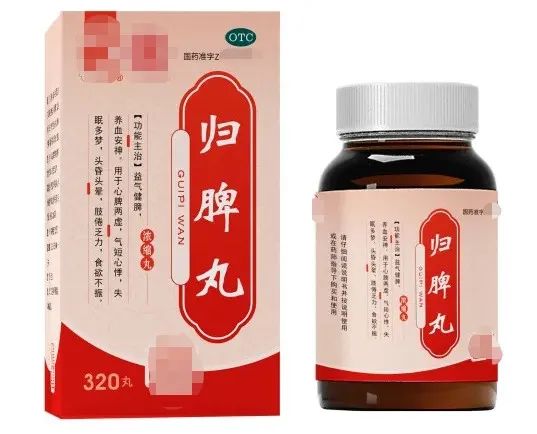 Image for reference only; please use TCM formulas under the guidance of a physician.Ingredients: Dang Shen (Codonopsis Pilosula), Chao Bai Zhu (Atractylodes Macrocephala), Zhi Huang Qi (Astragalus Membranaceus), Zhi Gan Cao (Glycyrrhiza Uralensis), Fu Ling (Poria Cocos), Zhi Yuan Zhi (Polygala Tenuifolia), Chao Suan Zao Ren (Ziziphus Jujuba), Long Yan Rou (Dimocarpus Longan), Dang Gui (Angelica Sinensis), Mu Xiang (Aucklandia Lappa), Da Zao (Ziziphus Jujuba)Originating from the ancient formula Gui Pi Wan, it is used for symptoms of qi and spleen deficiency leading to shortness of breath, palpitations, insomnia with vivid dreams, dizziness, fatigue, and poor appetite.Clinically, it can be applied to coronary heart disease, neurasthenia, functional uterine bleeding, duodenal ulcer bleeding, thrombocytopenic purpura, anemia, aplastic anemia, gastric ulcers, menopausal syndrome, menstrual irregularities, amenorrhea, impotence, and lupus erythematosus.Note: This formula is contraindicated for those with phlegm-dampness, blood stasis, external pathogens, or hidden heat and yin deficiency with a rapid pulse.3. Ejiao Blood Nourishing Oral Liquid
Image for reference only; please use TCM formulas under the guidance of a physician.Ingredients: Dang Shen (Codonopsis Pilosula), Chao Bai Zhu (Atractylodes Macrocephala), Zhi Huang Qi (Astragalus Membranaceus), Zhi Gan Cao (Glycyrrhiza Uralensis), Fu Ling (Poria Cocos), Zhi Yuan Zhi (Polygala Tenuifolia), Chao Suan Zao Ren (Ziziphus Jujuba), Long Yan Rou (Dimocarpus Longan), Dang Gui (Angelica Sinensis), Mu Xiang (Aucklandia Lappa), Da Zao (Ziziphus Jujuba)Originating from the ancient formula Gui Pi Wan, it is used for symptoms of qi and spleen deficiency leading to shortness of breath, palpitations, insomnia with vivid dreams, dizziness, fatigue, and poor appetite.Clinically, it can be applied to coronary heart disease, neurasthenia, functional uterine bleeding, duodenal ulcer bleeding, thrombocytopenic purpura, anemia, aplastic anemia, gastric ulcers, menopausal syndrome, menstrual irregularities, amenorrhea, impotence, and lupus erythematosus.Note: This formula is contraindicated for those with phlegm-dampness, blood stasis, external pathogens, or hidden heat and yin deficiency with a rapid pulse.3. Ejiao Blood Nourishing Oral Liquid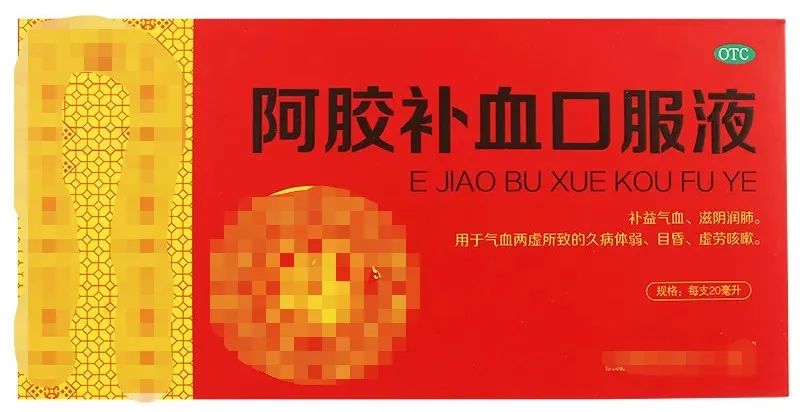 Image for reference only; please use TCM formulas under the guidance of a physician.Ingredients: Ejiao (Donkey-hide Gelatin), Shu Di Huang (Rehmannia Glutinosa), Dang Shen (Codonopsis Pilosula), Huang Qi (Astragalus Membranaceus), Gou Qi Zi (Lycium Barbarum), Bai Zhu (Atractylodes Macrocephala)Indicated for weakness due to both qi and blood deficiency, leading to prolonged illness, dizziness, and cough due to deficiency.Note: This formula is a qi and blood tonifying medicine, thus it is not suitable for those who are robust and not deficient, or those with excessive phlegm, abdominal distension, poor appetite, or loose stools. It is best taken before meals or simultaneously with food.4. Yi Qi Yang Xue Oral Liquid
Image for reference only; please use TCM formulas under the guidance of a physician.Ingredients: Ejiao (Donkey-hide Gelatin), Shu Di Huang (Rehmannia Glutinosa), Dang Shen (Codonopsis Pilosula), Huang Qi (Astragalus Membranaceus), Gou Qi Zi (Lycium Barbarum), Bai Zhu (Atractylodes Macrocephala)Indicated for weakness due to both qi and blood deficiency, leading to prolonged illness, dizziness, and cough due to deficiency.Note: This formula is a qi and blood tonifying medicine, thus it is not suitable for those who are robust and not deficient, or those with excessive phlegm, abdominal distension, poor appetite, or loose stools. It is best taken before meals or simultaneously with food.4. Yi Qi Yang Xue Oral Liquid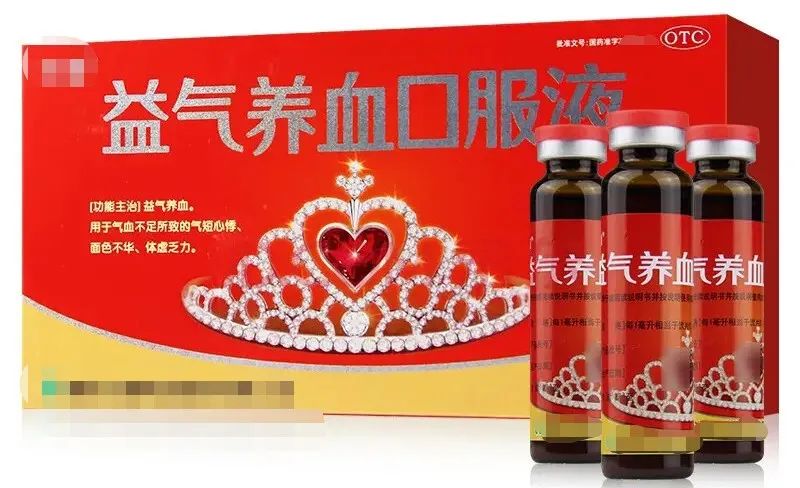 Image for reference only; please use TCM formulas under the guidance of a physician.Ingredients: Dang Shen (Codonopsis Pilosula), Mai Dong (Ophiopogon Japonicus), Di Huang (Rehmannia Glutinosa), Ren Shen (Panax Ginseng), Dang Gui (Angelica Sinensis), Wu Wei Zi (Schisandra Chinensis), Di Gu Pi (Lycium Barbarum), Yin Yang Huo (Epimedium), Huang Qi (Astragalus Membranaceus), Chao Bai Zhu (Atractylodes Macrocephala), Zhi He Shou Wu (Polygonum Multiflorum), Chen Pi (Citrus Reticulata), Lu Rong (Cervus Nippon)This formula has the effect of benefiting qi and nourishing blood. It is used for symptoms of qi and blood deficiency such as shortness of breath, palpitations, and fatigue.Note: Caution is advised for those with internal damp-heat or phlegm-heat (which may present as heavy head, dry mouth and bitter taste, yellow urine, sticky and unsatisfactory stools, or excessive phlegm, yellow phlegm, or thick phlegm) to avoid exacerbating symptoms.Tips from Master Huang1. The above medicines should be used under the guidance of a physician, and it is not recommended to use multiple medicines with the same ingredients.2. When taking the above blood-nourishing medicines, avoid hard-to-digest foods. Patients with colds or fevers should not take these medicines.3. Women with previously normal menstruation who suddenly experience scanty periods, delayed menstruation, or irregular vaginal bleeding should seek medical attention.4. Patients with severe dizziness, palpitations, or shortness of breath should seek medical attention.Reading Rankings:1. Chronic pharyngitis, sore throat, itching, and foreign body sensation; commonly used single herb to help soothe the throat.2. With the flu outbreak, choose 1 or 2 of 60 TCM formulas; no need to stock up on oseltamivir, and you can easily cope.3. What is the difference between “licorice tablets” and “compound licorice tablets” for cough? In fact, neither is a TCM formula.4. The name itself indicates efficacy; it is effective for kidney deficiency, low back pain, tinnitus, toothache, and hair loss.5. Three types of TCM that can be eaten as food, nourishing qi and blood, aiding sleep, nourishing the spleen and stomach, and regulating constipation and diarrhea.
Image for reference only; please use TCM formulas under the guidance of a physician.Ingredients: Dang Shen (Codonopsis Pilosula), Mai Dong (Ophiopogon Japonicus), Di Huang (Rehmannia Glutinosa), Ren Shen (Panax Ginseng), Dang Gui (Angelica Sinensis), Wu Wei Zi (Schisandra Chinensis), Di Gu Pi (Lycium Barbarum), Yin Yang Huo (Epimedium), Huang Qi (Astragalus Membranaceus), Chao Bai Zhu (Atractylodes Macrocephala), Zhi He Shou Wu (Polygonum Multiflorum), Chen Pi (Citrus Reticulata), Lu Rong (Cervus Nippon)This formula has the effect of benefiting qi and nourishing blood. It is used for symptoms of qi and blood deficiency such as shortness of breath, palpitations, and fatigue.Note: Caution is advised for those with internal damp-heat or phlegm-heat (which may present as heavy head, dry mouth and bitter taste, yellow urine, sticky and unsatisfactory stools, or excessive phlegm, yellow phlegm, or thick phlegm) to avoid exacerbating symptoms.Tips from Master Huang1. The above medicines should be used under the guidance of a physician, and it is not recommended to use multiple medicines with the same ingredients.2. When taking the above blood-nourishing medicines, avoid hard-to-digest foods. Patients with colds or fevers should not take these medicines.3. Women with previously normal menstruation who suddenly experience scanty periods, delayed menstruation, or irregular vaginal bleeding should seek medical attention.4. Patients with severe dizziness, palpitations, or shortness of breath should seek medical attention.Reading Rankings:1. Chronic pharyngitis, sore throat, itching, and foreign body sensation; commonly used single herb to help soothe the throat.2. With the flu outbreak, choose 1 or 2 of 60 TCM formulas; no need to stock up on oseltamivir, and you can easily cope.3. What is the difference between “licorice tablets” and “compound licorice tablets” for cough? In fact, neither is a TCM formula.4. The name itself indicates efficacy; it is effective for kidney deficiency, low back pain, tinnitus, toothache, and hair loss.5. Three types of TCM that can be eaten as food, nourishing qi and blood, aiding sleep, nourishing the spleen and stomach, and regulating constipation and diarrhea.